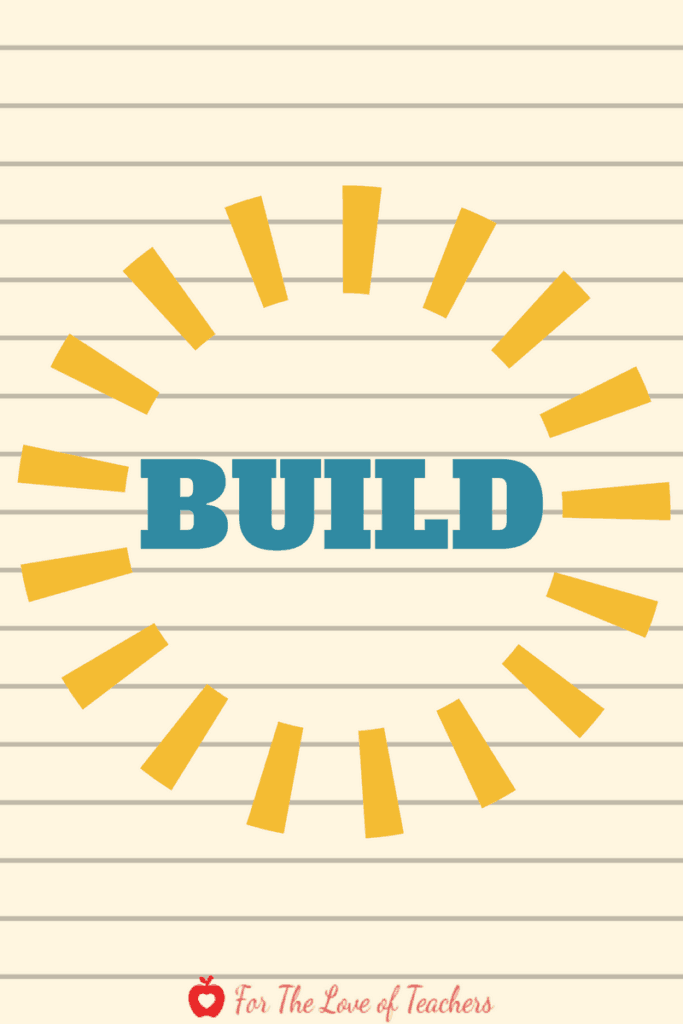I am fortunate to be the parent of a very curious and smart 8-year-old boy who asks excellent questions and does very well in school. His teachers describe him as a role model to others, a leader, focused and attentive and a kind and caring friend. At home, this same child flexes his muscles in a much different way, seeking any type of attention, whether positive or negative, challenging rules and expectations. As a teacher, I have heard about this from parents of students in my class telling tell me that my “perfect” student was much different at home. So now having a strong-willed child of my own, I became curious in learning more about this.
Because I am a teacher, some may think I have the answers to “fixing” any type of behavior. And in the classroom, I definitely have had my share of strong-willed children. So I did some research for two reasons, one was from a parent standpoint to learn more about strong-willed children so I could better understand this little human that is a challenge, and the second was from a teacher standpoint to learn how I could better support and teach strong-willed children in my classroom.
On one very recent summer day, when I just about had enough and was at my wit’s end, I came across this fantastic article that helped changed my mindset, Strong Willed Children; How to Bend Them, Not Break Them!! This article immediately caught my attention because one thing I know I don’t ever want to do is to break the spirit of a child. Children come in all different shapes and forms and it is my job as a teacher and a parent, to help mold and educate all children into the best possible person they can be. And I know breaking them is not the answer to teaching them. I love the ideas in this article. It says that strong-willed children are known to be disruptive or stubborn. This may appear to be true but sometimes I have to laugh under my breath because very often the things that strong-willed children “fight” for are completely logical. At times strong-willed children can convince others to do something or have something done their way because it makes perfect sense. As I reflected as a parent, I realized that many of the things my own child was challenging me about resulted in a power struggle. When I heard myself using phrases like, “Because I said so!” or “Because I am the Mom (or the teacher!),” I knew something had to change.
According to the article, strong-willed children tend to be difficult to teach and are disruptive. They may be labeled with Oppositional Defiant Disorder (ODD), or Attention Deficit Hyperactivity Disorder (ADHD). However, it goes on to say that strong-willed children will become excellent teens and world-changing leaders. So how do teachers support and teach strong-willed children without breaking them?
The 3 Bs to Teaching Strong Willed Children
Mold and educate strong-willed children by listening. Listen to and respect their grand ideas and opinions. Encourage them to elaborate on their thoughts with other students. In the classroom, set clear rules, routines, expectations, and consequences. Be flexible but draw a line to demonstrate what is acceptable and what’s unacceptable in the classroom. Avoid power struggles that break down the strong-willed child. (For teaching and modeling routines and procedures, see my Modeling Scripts. They are my classroom management timesaver.)
Help strong-willed children build upon on their ideas. Allow these students to lead through projects. Encourage students to take ownership of their work and actions. Engage them in responsibilities and tasks within their own passions and interests. Allow them to lead others by example to do great things. Give strong-willed students opportunities to learn, fail and reflect. Making mistakes is part of the learning process and a strong-willed child who fails is sure to get right back up to take another shot at it. Support their failures and celebrate their accomplishments. (This Success After Failure Project is a great project to do.)
Believe that all children, especially strong-willed children, can and will become leaders that will change the world. These students have the potential to achieve more than we can ever foresee. We are teaching the future leaders, educators, parents, and citizens. Believe that they are not stubborn and are not acting in a way to just get what they want. Believe that they have a passion or a mission to make something impossible become possible. Believing in all children helps them to live up to their greatest potential.
Now when I think about the parent and teacher that I want to be, and think about my own children, as well as the ones that I teach, I feel confident that we can bend, build and believe in strong-willed children to make them the best that they can be.
What are your personal or professional experiences in parenting or teaching strong-willed children? Please share so we could learn from each other.
Be sure to visit the For The Love of Teachers to join the email list to receive the latest and greatest posts and freebies, and visit the Shop for resources to support your classroom.


Christine Weis is a passionate educator, classroom management coach, wife, and mom of two busy boys. She enjoys teaching, writing, and creating resources for teachers.








Thank you Christine for your post. I have a 3-year-old boy who is strong-willed. He wants to do what he wants at his own time. He would not even clean up his toys when he is done playing. It has to be a struggle. But I make him do it even while he cries. I feel bad but yes, I know it is essential. At home, it is easier for me to work with him because I understand him and I know how to pick my battles. At school (he attends daycare), I think his teacher has a very hard time because I get this complaint from her every week. “My son pushed another child, he knocked off another child’s project, he hit his teacher… and the list goes on”. I understand that teacher, but I also think she is having such a hard time with my child because she might have not figured him out yet. I try to help by telling her how and what I do at home to help with the power struggles but I don’t know if they apply it at school. What really tickled me was when the director of the school proposed to have a mental professional come and evaluate my child. And I asked her for what? And she could not give me any concrete reasons besides we are worried about his safety. And I asked how is that: to which she said when he is upset he throws himself to the floor and the teacher is there to catch him every time but it might not always be the case she mentioned. I was curious about that because the last time my son did that was when he was still 2 years old. At a store, he threw himself down and would roll over the floor screaming loudly as he cried but never happened again after he didn’t get what he was crying for in the first place. A toy! At this point, I am not sure if his teacher knows what to do and I think she has given up. I would like to hear your take on this and I am open to any suggestions.
Hi Cynthia!
Thank you for reaching out with your comment. I have not one, but two, strong-willed boys of my own. And let me also add that age 3 is not a pleasant one. Many of the things you describe are very typical of a 3-year-old boy. My 3 year old never picked up his toys and still doesn’t at age 4 and a half. My boys have both thrown tantrums when they didn’t get the toy they wanted at the store. Now, if the teachers are reporting more aggressive behaviors, behaviors that you don’t typically see, like pushing, hitting, throwing, etc., I would question what is triggering these behaviors in the daycare setting and how they are handling it.
Here are some questions you might want to ask:
1. What triggers the behaviors? Describe what happened before that led to the more “aggressive behavior.”
2. What procedures do you have in place to handle such behaviors? Positive Time Out? Consequences?
3. What kind of positive behavior support can they provide throughout the day to minimize these behaviors? Perhaps a positive behavior chart can help– if your son receives 3 smiley faces he can choose a reward. You can also implement the same rewards system at home. If your son picks up his toys, he gets a smiley face or an immediate reward.
The most important part of positive behavior support, at both home and daycare, is consistency and following through. Many parents, including myself, find this very difficult to do and fail. Parenting is the most difficult job in the world (besides teaching, wink, wink), but it’s a good idea to ask the right questions in order to get the right answers about your child’s behavior in daycare. And remember it’s a cycle of phases and stages at all ages.
Take a look at this page: Responsive Classroom . It has an approach to handling behaviors that you might find helpful.
Wishing you all the best on this journey called parenthood. Hang in there, mama! You are doing an awesome job!
Christine at For The Love of Teachers
Thank you for your feedback. It is very much appreciated. And you do bring out a very valid point about asking the right questions.
Dear Christine, thanks for you inspiring words. I’d love to hear your thought on the following matter: As a mother of a strong willed boy of almost 4 years old we’r e trying to discover what the best educational system would be for him. As an art teacher I recently started teaching at a Waldorf high school. And I believe this educational system could be a a good fit for our son, because of the clear day rhythms, rituals and the fact that the bounderies are very clear (teacher in Waldorf schools can be quite strict as far as I have seen) and above all because of the idea behind this education form is to see all children for who they truly are and that teachers try to get the best out of them by an individual approach. Would you agree or do you might have another suggestion for a suited educational system for strong willed children? May be the Montessori education system where children work and are thought to be more autonomous in their own learning would fit better for a strong willed child? best regards, Femke (from Amsterdam, the Netherlands)
Hi there,
Thank you so much for reading and for reaching out with your question. In my experience as an educator, I do feel that a structured environment is the best place for children, including strong-willed children. When the boundaries, routines, and expectations are clear students will thrive. I also have noticed that strong-willed children are often more so strong-willed at home, rather than in the school setting. That varies from child to child. My own children are very strong-willed at home, but not at school. Lucky me! 😉
In my personal opinion about Montessori schools, I do not suggest that kind of setting for strong-willed children. I believe that structured learning environments are the way to go.
As a parent, it can be frustrating and often times trial and error. I would try the Waldorf setting first and then reconsider if you see it is not a good fit for your strong-willed child. Parenting is the hardest job in the world, isn’t it? You got this!
I hope this helps,
Christine at For The Love of Teachers
Thank you very much for your advice, I really appreciate it!
You’re very welcome! Best wishes!
Christine at For The Love of Teachers
It’s hard to watch my 7 y.o. strong willed/power kiddo in the classroom setting, because he really doesn’t get the concept that just because he doesn’t FEEL like doing the worksheet or writing assignment or whatever, doesn’t mean he doesn’t HAVE to do it. He consistently comes home with incomplete papers that now become “homework” because he chose to doodle or just sit there when class time was given for the work. It drives me crazy because I know I can’t (and shouldn’t) MAKE him, but I really want him to want to. I haven’t really found a good motivator for him, especially because we believe in intrinsic motivation and natural consequences. All I can do is tell him that his free time at home is now on hold until his homework is finished, and encourage him to be proud of once he’s completed it. Any other tips? His teacher is frustrated as well, after a whole year of very little progress. He’s smart and a strong reader and there doesn’t seem to be a learning issue, just a battle of wills. He needs someone there coaching him along (pulling him along) line by line some days, and no teacher can afford to do that with their time, nor do I want that to be the only way he succeeds in the classroom.
Hi Amy!
Thanks for reaching out! I can see how frustrating this is for both you, your son, and his teacher. I’ve had many students like this in my classroom. Although we want our kids to be intrinsically motivated, some just aren’t or are just not there yet developmentally. I do recommend some extrinsic motivators. One option is to have a work checklist on his desk. The student and I would both keep track of assignments throughout the day. We’d check off what was completed and what still needed to be completed. The visual helped us both. And yes, most parents requested that the unfinished work is sent home so they could see it for themselves and have it completed for homework. I’d give my student some kind of reward for completing their work during the school day and would let them choose what that reward was. Sometimes it’s just finding what motivates them to do their work, like extra tech time, extra recess, choice time, etc. You could also provide some incentives at home. For example, “If you finish all of your work in school today/this week, you can choose something you’d like to do or somewhere you’d like to go after school/on the weekend OR you can have extra game time/play time at home since you don’t have to spend time home time on classwork.”
I know that this is easier said than done but it’s worth a try. I have an 8-year old who flexes those strong-willed muscles at home. I know how draining it can be. Parenting is a tough job. Let’s hope we are raising leaders that will change the world. 😉
Thanks so much for reading. Feel free to reach out anytime. I’m happy to help!
Christine at For The Love of Teachers
I can only imagine the struggle! great post!
Ahh yes! The struggle is real with my 6 year old… lol. Thank for reading!
Christine at For The Love of Teachers
Love this! I’m both a teacher and a parent… 🙂
Thanks so much! That means a lot coming from a teacher and a parent! 🙂
Christine at For The Love of Teachers
How beautiful it is to have this new way of nurturing the child’s learning process. Each child has a different way of making a mark in this world and it is up to the adults around them to steer them to the direction that will maximize their potential.
I agree! It is up to the adults in a child’s life to guide and steer them, and most of all to support and understand them. Thanks for reading Katrina!
Appreciate it!
Christine at For The Love of Teachers
Your post reminds me of my little brother. He had and still has a very strong well but with that he’s made some great accomplishments. Tips like these are great because so many people don’t know how to deal with strong-willed children and/or they see it as a negative quality.
-Sarah Camille // SCsScoop.com
I hear ya…Strong willed people do make great accomplishments which really opened my eyes to how to support and teach my own child, plus the students in my class. Strong willed people never give up! Something I admire! Thanks for reading!
Christine at For The Love of Teachers
Thanks, Christine! These are great tips, not only for teachers and parents but also for single women like me who may encounter difficult children either while babysitting friends’ or relatives’ children or even on the job, where one may encounter or serve children regularly.
Thanks Patricia! Good point! I’m glad that these tips could help anyone in general that service children. Thanks for reading and for leaving a comment!
Christine at For The Love of Teachers
As a former teacher I totally love this!
Thanks for reading! Appreciate it!
Christine at For The Love of Teachers
I like that you put a process to this. Everyone has encountered someone strong-willed. As teachers we are always looking to help those kids. This is a great frame work to think through this process.
Thanks Lori! I agree that teachers are always looking for ways to help strong willed children. I appreciate you reading and leaving a comment!
Christine at For The Love of Teachers
Believing is the most important I think. Any child, or even adult, won’t do much unless there’s someone to believe in them.
I agree! Believing in a person supports them in so many positive ways. Thanks for reading!
Christine at For The Love of Teachers
Aw, these are all important tips!! Bend, build and believe. I think bending is like challenging which is actually essential to grow, and building is to improve them and believing is so they can have confidence and be better. Love this article!
YES!!! You got it Claire! Thank you for reading and for leaving a thoughtful comment! Appreciate it! 🙂
Christine at For The Love of Teachers
Love it! I’m not a teacher or a parent, but thanks for the great insight!
Thank you! I appreciate your comment Alexandria!
Christine at For The Love of Teachers
Christine! I also have a strong-willed child of my own and ofcourse have encountered many in my teaching career. Thank you for sharing what you have learned of the three B’s. I am going to definitely put these into practice at home and in my classroom! Again, you have inspired me!
Thanks Lori! Having a strong willed child of your own isn’t easy but it has certainly opened my eyes to how to support and teach strong willed students in my classroom. I’m always working on new ideas to support my students! Thanks for reading as always and for leaving a thoughtful comment!
Christine at For The Love of Teachers